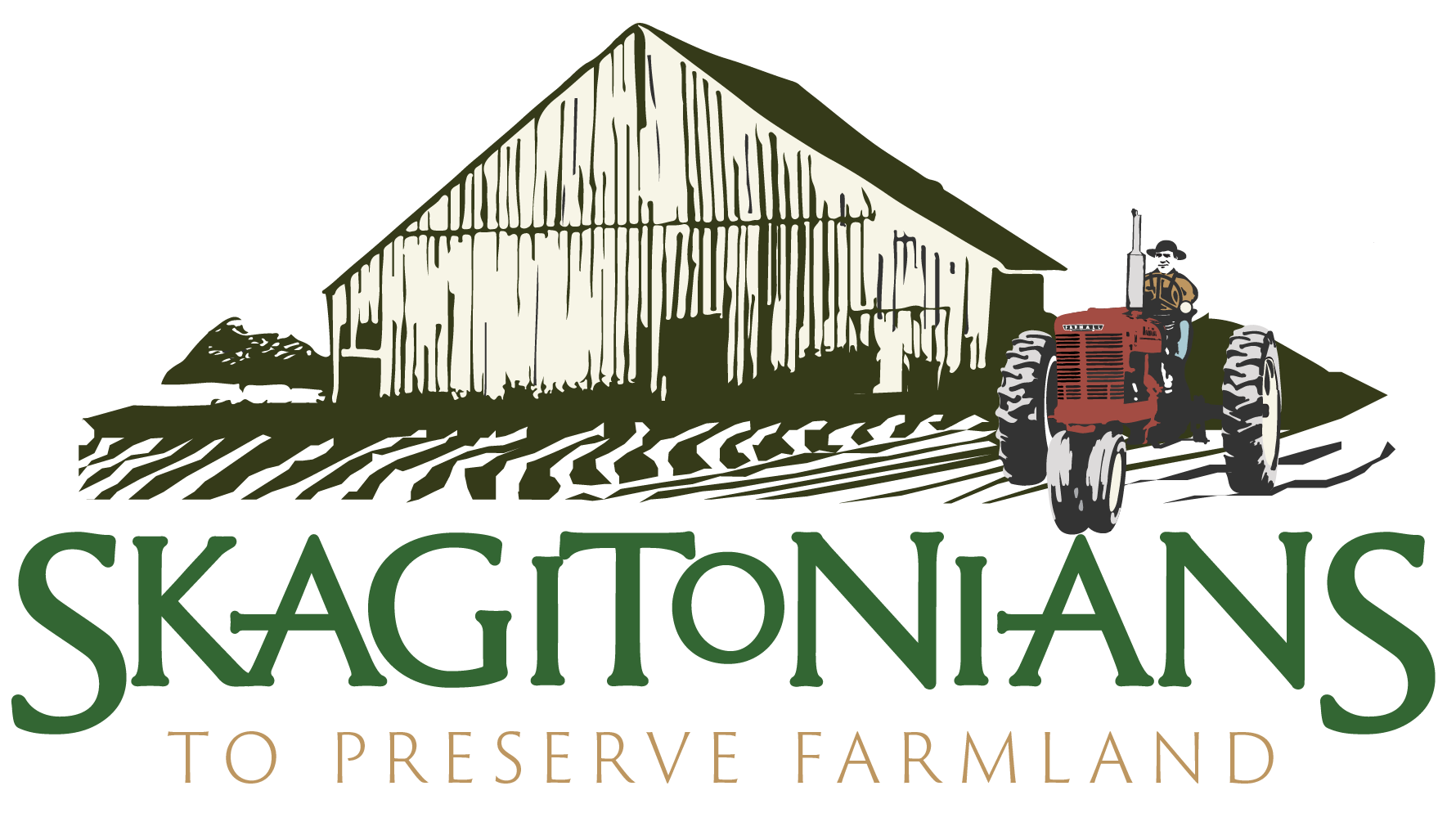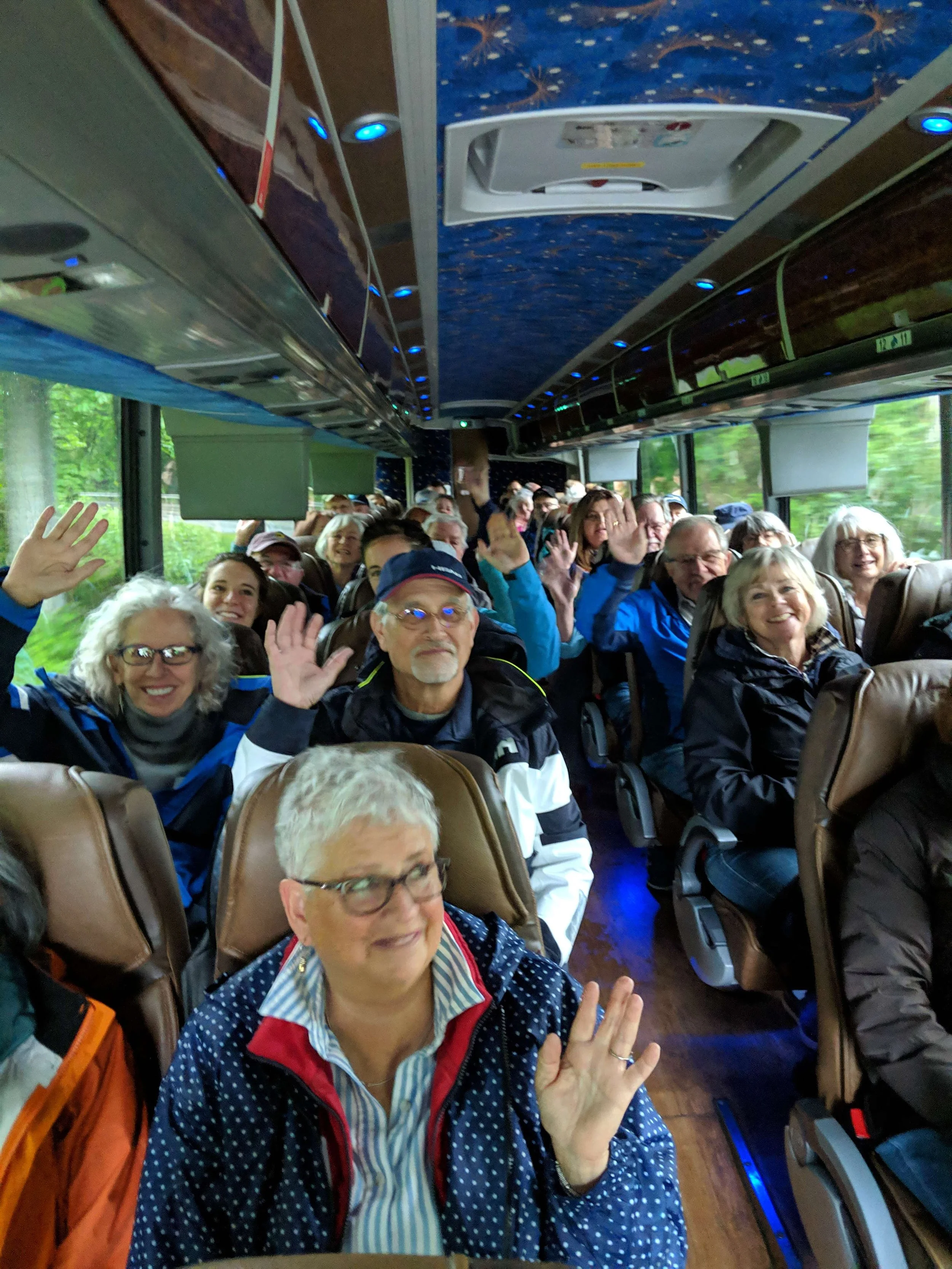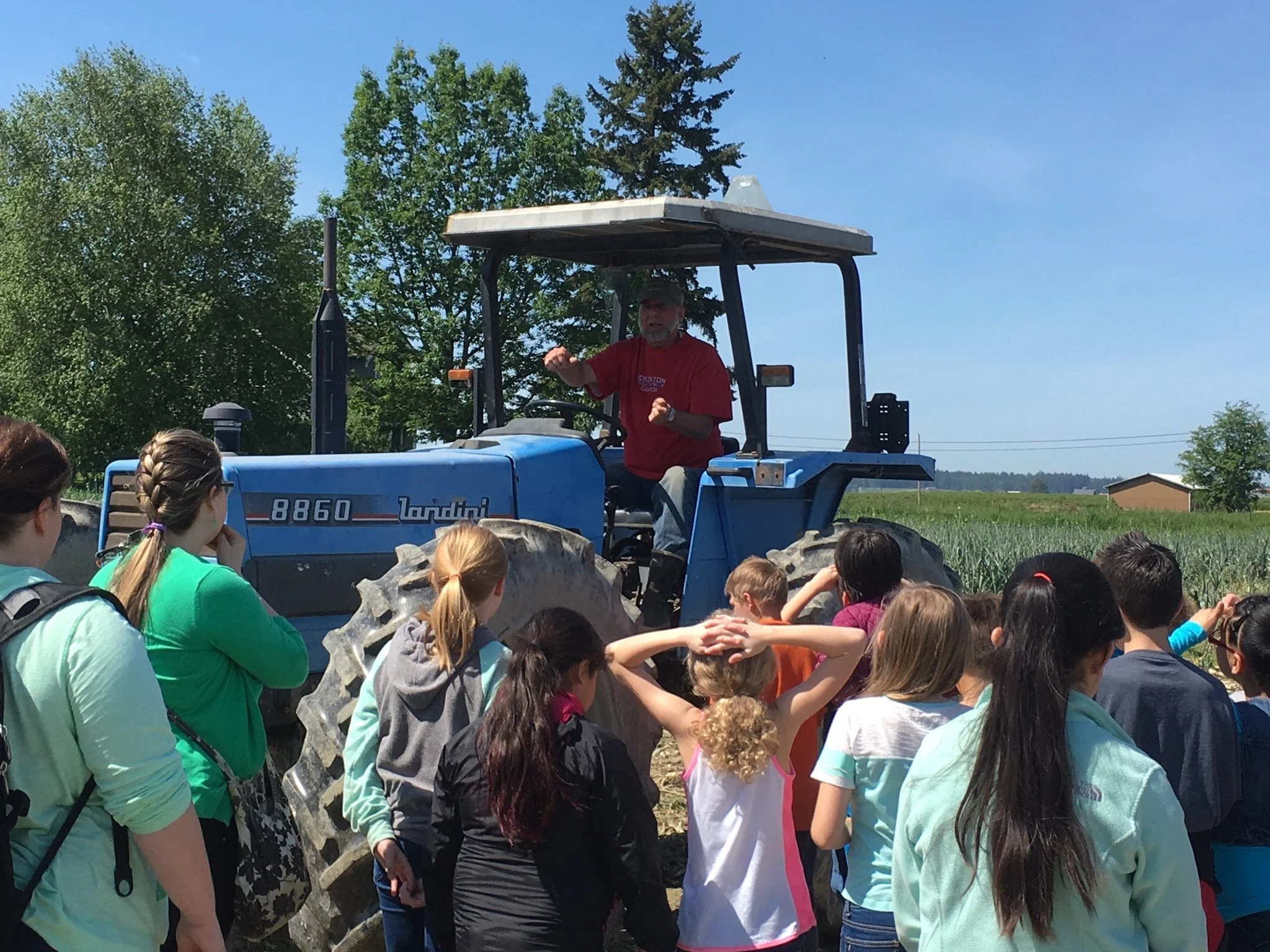From Allen's Desk
Welcome to From Allen’s Desk - a look at what’s happening in the world of Skagitonians to Preserve Farmland.
A new year arrived with an old problem: farmland under threat. 2022 also ushered in an opportunity: increased community collaboration behind a common passion for the Skagit Valley.
An out-of-town developer’s request to allow Fully Contained Communities (FCCs) throughout Skagit County’s rural and working lands appears to have been stalled for now by the concerted efforts of Right Growth Right Place — a growing grassroots coalition of citizens and organizations concerned about Skagit County’s unilateral attempt to allow massive subdivisions of sprawl in our rural and working lands.
There is more in the update below, but I share it here as a reminder of the gift of community, and of the power of our voice, when raised together, to protect the character of the valley we cherish.
Fully Contained Communities (FCCs)
In January, the Skagit County Board of Commissioners suspended the preparation of a Draft Environmental Impact Statement (DEIS) to study the impacts of allowing multiple FCCs in Skagit County unless the local Growth Management Act Steering Committee, a committee made up of the County Commissioners and local mayors, agrees to allow new unincorporated Urban Growth Areas in the rural and working lands of Skagit County. While it’s encouraging, it doesn’t do enough.
The proposal remains on the County’s planning docket (a step in the process of amending Countywide Planning Policies) as a pending application.
Resolutions passed by the Town of La Conner, along with the cities of Anacortes, Sedro-Woolley and Mount Vernon, rightly shed light on the negative impacts of an FCC on drainage, traffic, our rural and working lands and open spaces, as well as quality of life found in the Skagit Valley.
An FCC — a massive subdivision of sprawl without a local government to manage infrastructure and public services — has no place on Skagit County’s rural and working lands.
SPF remains engaged with Right Growth Right Place coalition partners to monitor the status of the current FCC application and any efforts by the out-of-town developer or Skagit County officials to move the application forward again.
Closing the Sprawl Loophole - SB 5042 passed
With help from all of you, SPF joined a coalition from around the State to advocate closing an important loophole in the Growth Management Act (GMA).
The newly passed bill prevents certain types of land use decisions by counties, such as the permitting of FCCs or expanding UGAs, from vesting until the 60-day appeal period to the Growth Management Hearings Board has passed. If no appeals have been filed, the decision stands.
If an appeal is filed, the decision can’t vest until there is a decision or ruling by the Growth Management Act Hearings Board.
The passing of SB 5042 and the closing of this important loophole is a major victory in helping to preserve our remaining rural and working lands and is another important tool in protecting prime farmland in Skagit County and around the state. Thank you.
Agritourism
Skagit County is grappling with Agritourism, its impacts to farming, the economic opportunities, and what should or should not be an allowable tourism related use on our farmlands.
Late last month, after a year of work, Skagit County released a suite of policy concepts on how to address the growing tourism operations that are popping up within the agricultural lands of Skagit County.
You can access the County’s full report here.
Skagit County also has a public survey open and is gathering additional public opinion and information. You can take the County’s agritourism survey here.
As Skagit County begins deliberations and potential code changes and updates, the SPF Board of Directors believes strongly that:
1. Agritourism activities must be accessory to the primary use of agriculture on the site as evidenced by providing proof of farm income (Schedule F or other).
2. Any proposed tourism-related activity must be evaluated on the following criteria:
Must relate to and support the primary use of agriculture on the site,
Must not interfere with surrounding farming operations and practices,
Will provide experiences to visitors that promote and enhance Skagit agriculture overall, and
Will not result in the permanent conversion of farmland.
3. Agritourism permits should be required and issued on the basis of level of impact to the long-term viability of agriculture, agricultural soils, the environment, and adjacent farming operations. Activities that have the potential to be large in scale and impact should be required to obtain permits subject to review and renewal every three years.
Our Valley Our Future 2022 Breakfast Event
We welcome you back to in-person events, with a celebration of those who have and are contributing to the success of Skagit agriculture.
Join us Wednesday, June 15 at 7:00 a.m. for a free breakfast and to celebrate those who have kept this valley farming: farmers who have passed land down from generation to generation, legislators, who, decades ago, passed landmark legislation to protect farmland, and all the researchers, innovators and creative farmers who have worked hard to produce the best food and fiber in the world.
We also honor the up-and-coming farmers — the youngest generation whose passion for agriculture is our future.
Visit the Our Valley Our Future webpage for more information and to see all the past award winners.
2022 Spring Farm Tour
Mark your calendar for Friday, May 20th. Our signature Spring Farm Tour is back!
We look forward to hosting SPF members and guests on our first in-person farm tour since the start of the pandemic.
This year’s tour theme is water management and water quality. We will be visiting four sites for demonstrations and friendly conversation about commercial farming’s technological adaptation and cultural practices to protect water quality and improve irrigation efficiency and water table management for soil and plant health.
The day-long event includes lunch at Rexville Grocery’s outdoor pavilion.
Wildlife Damage
Resident Elk continue to be a challenge for our farmers in the Upper Skagit Valley. As they look to agricultural land to forage, they are breaking down fencing, destroying crops and, what’s worse, bringing a deadly disease.
Elk hoof rot is a growing problem for the herd, and they are transferring it to the soils that beef cattle, graze on — bringing the disease and infections that result in the death of livestock.
SPF continues to look for ways to support the Skagit Farm Bureau and Skagit County Cattlemen’s Association and others who are asking Skagit County and Washington State Department of Wildlife (WDFW) officials to take action to protect Skagit County’s agricultural lands and livestock industry in Upper Skagit County.
You can read about some of the issues farmers and livestock producers in eastern Skagit County face due to the failed management of a growing Elk population in our 2020 issue of The Dirt – Elk Management on Agricultural Lands.
Youth InFARMation
The 2022 Youth InFARMation Farm Tour program is well underway and tours are scheduled with Island View Elementary School and Harriet Rowley Elementary School. STEM kits, workbooks and lesson plans are being provided to Conway Elementary School to be used in conjunction with the 2022 online virtual farm tour series.
Filming for 2nd annual Virtual Farm Tour program took place on March 31st at Schuh Farms, Ralph's Greenhouse and Harmony Dairy.
STEM kits, workbooks, and accompanying lesson plans are being provided to students participating in the physical tours as well as virtual tours.
Contact Rachel at the SPF office by Friday, May 6 if you are interested in ordering STEM kits, workbooks and the accompanying lesson plans for this year's virtual tour for your classroom.
A big thank you and shout out to our tour hosts, sponsors and donors this year – Harmony Dairy, Harmony Fields, Ralph’s Greenhouse, Schuh Farms, Marathon Petroleum, Osborne Quality Seeds, and Soroptimist International of Anacortes.
You can still access and see the 2021 online virtual farm tour and workbook here.
Thank your for your continued support!
We are grateful for the support of our SPF members and community as a whole as we work together to protect and preserve Skagit farmland and farming—and all that comes with it!
With Gratitude








